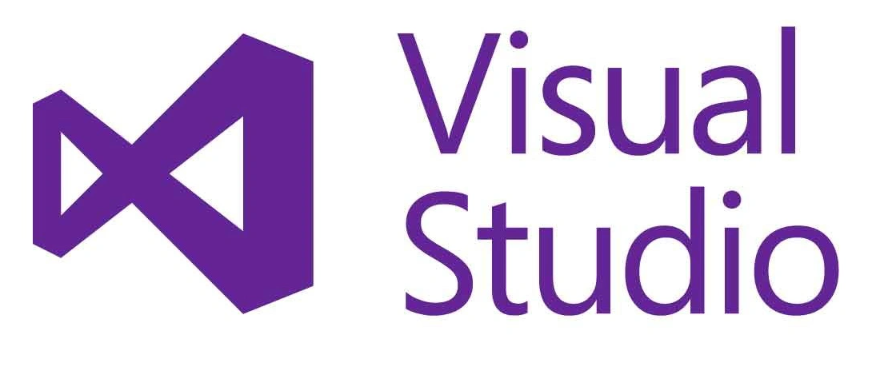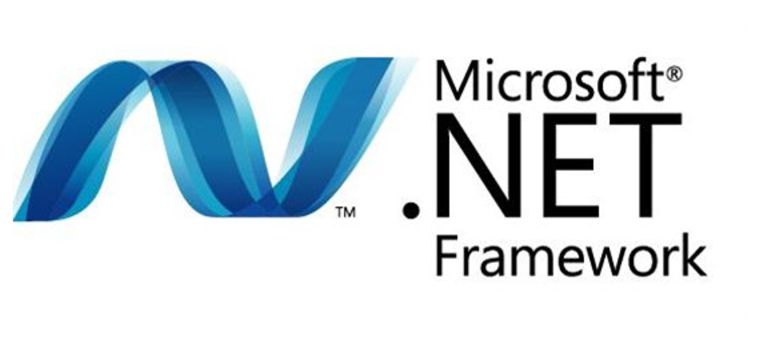.NET is an open-source development framework developed by Microsoft. This framework helps programmers design and create desktop, mobile, and web apps. The .NET framework was designed in such a way that developers can utilize multiple languages. Developers can use three main iterations of .NET; .Net Core, .Net Framework, and Xamarin for various types of application development. That said, let’s look at who .NET developers are, how to Hire .Net Developers, their responsibilities, etc.
What Is A .NET Developer?

A .NET developer designs and creates applications using Microsoft’s .NET platform. They also contribute to other tasks like deploying and maintaining .NET applications as well as services like backend services, microservices, Web-based APIs, web services etc.
The duties of a .NET developer may comprise interacting with clients, designing and building apps based on the business needs of these clients, assessing the performance of completed apps, and developing patches to fix malfunctioning apps.
For a .NET developer to succeed, they need hard and soft skills such as analytical skills, communication, problem-solving, teamwork, etc.
Why You Need to Test A .NET Developer’s Skills Before You Make Your Hiring Decision

To Check for Abstraction Skills
A good .NET developer should be able to work on several projects simultaneously. Therefore, before a development company hires a developer, they should ensure they possess project manager skills; ability to work on multiple projects without compromising quality.
To Check for Core Skills
Businesses should test a .NET developer’s skills to confirm if they possess core skills. It will be hard for a business if the developer is only proficient in outdated technologies. .NET developers should be proficient in current .NET frameworks.
To Confirm If They Have a Portfolio
Employers should ask for evidence when developers claim they have high-quality coding and programming skills. Usually, this evidence is in the form of a portfolio.
If the developer can’t provide evidence regarding a previous development project they’ve done, they might not be as good as they claim to be.
Reputable full-stack .NET developers, or any other developer for that matter, have a collection of their previous work, which they can present as evidence of their programming skills.
To Check for Experience in Backend Programming
Backend programming is a vital part of any .NET project whereby the client wants to store information linked to user profiles on their site. Therefore, if you want to store this information on your site, you should ensure your developer is proficient in backend development.
Otherwise, it would be an utter waste of time and resources, which can be easily avoided by confirming their experience in backend databases like MySQL, Oracle, SQL Server, etc.
To Check for DI (Dependency Injection)
DI (dependency injection) is vital to app development process because it allows easy maintenance and testing for various .NET web or mobile apps.
What Would Be the Estimated Cost for Hiring .NET Developers?

Several factors affect the would-be pricing of .NET developers. For starters, it depends on the candidate. Secondly, it depends on the complexity of the work to be done, including the processes used by the developer to complete the project.
That said, the estimated cost of onboarding a .NET developer in India starts from about $25 per hour, and it can rise to $100 depending on the candidate, location, project complexity, etc.
But hiring a dedicated .NET developer and expecting them to finish a project might not be enough. Companies should be aware of the options available to them; they can hire full-time (in-house) developers, freelance developers, or outsourced development partners.
How Much Do .NET Developers Make?

.NET developers make about $87,500 annually on average, or $42 per hour. The top 10% of developers make about 110,000 per year, while the bottom 10% make about $68,000.
Salaries vary based on factors like undergraduate education (Bachelor’s degree), professional certifications, additional skills, years of experience, etc.
Location can also affect how much developers make; in the United States, the states with the highest developer salaries are California, Nevada, New York, Oregon, and Washington.
Responsibilities of .NET Developers

- Come up with application architecture, interfaces, and specs.
- Design, develop and deploy software prototypes.
- Develop UIs (user interfaces) that promote top-notch user experience.
- Ensure that apps are engaging and user-friendly.
- Help other developers to complete project-related tasks
- Interact and work with other developers and software pros.
- Stay up to date with .NET best practices, concepts, and methodologies.
- Use client feedback to influence the development or future versions of an app.
- Utilize and modify existing web apps.
- Write clean and scalable code using .NET languages like VB.NET.
Are ASP NET Developers in Demand?

Yes, ASP.NET developers are on-demand, and their demand is increasing worldwide. In the future, the need for ASP.NET developers will grow with more and more companies using this .NET technology for their products and/or services.
The demand for .NET developers has also been occasioned by the fact that more developers are opting to use this framework as opposed to others like HTML and JQuery. Apart from Microsoft, the .NET framework is also used by other companies like Cisco and Intel.
Is It Hard to Find .NET Developers?

As illustrated above, there is a high demand for NET programmers across the globe. As a result, companies are finding it hard to fill their .NET software development positions.
This can be seen as a case of demand exceeding the available supply, but that’s not the only reason. The other reason is that while most companies want full-time .NET developers, most developers like being freelance because they make more money that way.
What Is .NET Developer Skills?

.NET developer skills are the skills .NET developers need to design, develop, deploy and maintain applications and software under the .NET umbrella. Some of the skills that .NET developers require in their day-to-day activities include:
Coding
.Net developers should know how to write code to allow the apps and software they develop to function as intended using CLR. They should know the purpose of the code to help them decide if they can use existing code and the amount of new code they need to write.
Collaboration Skills
To complete pending projects on time, .NET developers should have collaboration skills that help them work with other pros and learn from them.
Databases
Understanding databases and SQL is essential to backend and frontend .NET developers because not only is it handy for writing code but also for fixing bugs.
MVC (Model-View-Controller)
MVC (Model-View-Controller) is a design pattern, and its iterations, like ASP.NET MVC, can be used by developers for web development.
SCRUM
SCRUM is an agile framework for designing, developing, delivering, and sustaining complex software. .NET developers should be able to work in SCRUM and thoroughly understand the existing Agile development principles.
What Language Does A .NET Developer Use?

The most common programming language amongst .NET developers is C#, with over 90% claiming to use it. Approximately 50% and 40% of .NET developers use JavaScript and Typescript (Angular), respectively.
Programming languages used by less than 20% of developers include Microsoft’s F#, PHP, and Python. Other programming languages like CSS, Rust, and Visual Basic (VB.NET) are used by less than 10% of .NET development services specialists.
How to Hire .Net Developers

Develop an In-Depth Job Description
.NET development specialists have varying expertise and skills. To be able to navigate the hiring market and find talents that fit their companies should develop in-depth job descriptions.
Specify The Hiring Model
Companies need to specify the hiring model they’re using. Typically, there are three hiring models companies can use, and they include:
Contract
This is where a company pays a developer a fixed sum following the completion of a project or several projects. This hiring model is recommended for short-term projects.
Fulltime
This is when a company hires a developer full-time, and they work from the office or at home. This hiring model is recommended for long-term projects.
Freelance
This hiring model is when a company hires .NET developers and pays them per hour. This model is recommended when companies need developers as soon as possible and don’t have the time or resources to conduct an elaborate hiring process.
Check The Right Platforms
Perhaps the most critical step in hiring a good .NET developer is knowing where to find them. Companies should research to find platforms that programmers frequent the most.
Screen Job Applicants
Once a company starts getting applications, it should screen job applicants based on their qualifications, skills, and years of experience.
Conduct Interviews
When a company has screened job applicants, they should select the best ones and interview them to see if they are the best fit.
Hire
After interviewing job applicants, the last step is hiring the shortlisted candidates. Of course, only the best ones should be hired.
What Is the Difference Between A .NET Developer and A Java Developer?

Perhaps the most notable difference between a .NET developer and a Java developer is that Java developers design and develop apps for virtually all operating systems (cross-platform).
.NET developers, on the other hand, mainly design and develop applications and software for various Windows OS versions. Although the .NET framework is somewhat open-source and can be used for Android, iOS, IoT, Linux, and macOS, it’s mainly used to develop Windows apps.
What Do You Need to Hire Remote .Net Developers?

A Detailed Job Description
.NET developers have varying expertise and skills. As a result, companies should create detailed and well-structured job descriptions to find suitable candidates.
Examine Previous Experience
When hiring .NET developers, companies must evaluate their experience to confirm that they possess the necessary competence and skills.
Conduct Interviews
Interviews are necessary to help companies shortlist only the best candidates. Interviews can be oral or practical, depending on the company.
What Are the Advantages of Hiring A .NET Developer?

Build Customized Applications
Dedicated .NET developers can help companies design and build bespoke applications that meet their requirements. It’s easy to spot the organized nature and professional look in projects undertaken by dedicated .NET developers.
Offer Practical Results
When a company hires a dedicated .NET developer or development team, their projects will be finished on time with practical outcomes.
Saving on Time and Cash
Ecommerce companies can hire .NET developers based on their needs. For instance, they can hire them part-time or hire freelance developers. This helps companies save time and money because they’ll only call upon the developers when needed.
Technical Support
When companies hire .NET developers, they get robust, scalable, and secure solutions to any problems that arise within new and existing .NET applications and software.
Top-Notch Application Performance
.NET developers use compiled programming languages to deliver faster and more reliable code. This boosts the speed of the web applications developed.
What Is the Best Way to Find .NET Developers?
GitHub

Perhaps the best way for companies to find .NET developers is by checking GitHub. Companies can log onto this platform to find the best .NET developers or any other developer for that matter, and hire them either full-time or part-time.
Stack Overflow

Stack Overflow is a coding Q&A and FAQ platform where companies looking to hire developers can upload tasks for developers. This allows companies to find developers that suit their needs.
Tech Events
Another way that companies can find developers is by checking tech events. Not only can they find unemployed developers, but they can also find employed ones and make them offers.
Is A .NET Developer a Software Engineer?

Yes, a NET developer is a software engineer that designs and creates apps and software using the .NET framework. .NET development specialists design, create, deploy and maintain .NET applications as per the needs of the project.
A .NET developer should have a degree in computer science, IT, software engineering, or any other related field. Additional certifications in software development are an added advantage.
Is .NET Developer a Good Career?

.NET development is a promising career because it’s one of the most sought-after areas in programming and makes developers versatile.
But keep in mind when you’re a .NET developer, you’ll need to update your expertise in C#, F#, and VB.NET after about three or four years to keep up with the ever-changing needs.
What Does It Take to Be A .NET Developer?

To become a developer, you need to:
Be Proficient in The Relevant Tools and Technologies
To become a .NET developer, you must be proficient in .NET technologies like .NET Core, .NET Standard, and Xamarin. This will help you understand the .NET platform better and the various pathways available to you as a .NET developer.
Learn Necessary Languages Like C#, F# and VB.NET
The primary language used by .NET developers for all types of apps and software is C#. Every .NET developer should be proficient in C#. In addition, .NET developers should also be skilled in F# and Visual Basic .NET (VB.NET).
Learn Additional Languages Like HTML and Java
.NET developers should also be proficient in additional languages like HTML, Java, and PHP since most mobile, PC, and website apps use them.
Since .NET is a flexible framework, developers can choose various languages and be good at them. Developers don’t have to get formal education to be proficient in programming languages; they can use online resources.
Pick a Specialization
Since the .NET framework allows developers to design and build mobile, PC, and web apps, picking a specialization can help them decide the type of jobs to apply for.
Specializations available for .NET developers include:
- Cloud apps
- Mobile apps
- PC apps
- Web apps
- Microservices
Why Hire Dedicated .Net Developers?

Custom Application Development
One of the reasons you should hire .NET development specialists is to have apps designed and built to suit your business needs. Custom application development using the .NET framework is so good because companies can have bespoke mobile applications.
Companies can also get apps that help with data collection for analysis. Typically, this is the .NET framework at its best; applications can be tailored toward the needs of the client, and the data collected can be more actionable and meaningful.
Knowledge of Multiple Development Technologies
Virtually all, if not all, dedicated .Net developers have interacted with ASP.NET MVC. They have also worked with additional programming languages and technologies like Python and Java.
Most dedicated .NET developers have experience in WPF (Windows Presenter Foundation) and the release of early versions of Windows OS.
Knowledge of multiple development languages and technologies is crucial because it means the developer can design and create high-quality and user-friendly web applications using technologies like Visual Studio.
Knowledge of multiple development languages and technologies also helps developers understand the SQL capacities of the .NET framework and use these abilities to undertake and finish small, mid-sized, and large .NET projects.
Skills and Expertise
Dedicated .NET developers are highly skilled and experienced, which will most definitely be an asset to their clients. Dedicated .NET developers possess skills that allow them to undertake various projects and adapt quickly should the needs of a specific project change.
Being highly skilled can also come in handy during re-organization; such changes may require developers to change their coding methodologies to suit the new structure of a client, all while ensuring the security of the app or software built.
How Long Does the Hiring Process Take?

Typically, most companies take between two and six weeks to interview and shortlist .NET developers, albeit the process can take longer depending on the needs of the company or the specifications of the developer.
Why does it take long to complete the hiring process for .NET developers? Well, let’s look at some factors that can lengthen the hiring process of .NET developers.
Company Location
Depending on where a company is situated, it can affect how long it takes for them to find developers that suit their roles.
In more developed countries and cities, it’s easier for companies to find developers, while in less developed countries and cities, it’s more complicated.
Company Recruitment Policies
Many companies have recruitment policies and protocols in place to help them determine personnel fit for development roles. Depending on the company, recruitment can be entrusted to one person, but in other cases, a panel conducts interviews and hires qualified developers.
Some companies opt to outsource their hiring needs to recruitment agencies. All these factors can contribute to how fast a company can hire a developer.
Company Size
Stats show that big organizations take longer to find .NET developers compared to small and medium-sized companies with few employees.
Why? Because it’s difficult for large companies to fast-track recruitment since the process involves various departments, and the expectations are typically higher.
How ASP.NET Core Developers Host Their Projects

ASP.NET core developers have access to various ways of hosting their projects. One of the best ways is using ASP.NET Core 6.
Why? ASP.NET Core 6 has rolled out a hosting model that’s easy, cutting the amount of code developers need to write to get their ASP.NET Core applications up and running.
This section will look at how developers can host their projects using ASP.NET Core 6. But first, ASP.NET Core developers must install Visual Studio on their machines. Developers without Visual Studio can check Microsoft’s website or use this direct link.
Follow the steps below to host an ASP.NET Core project:
- Launch the Visual Studio application on your machine.
- Next, press ‘Create new project.’
- In the ‘Create new project’ tab, click on ‘ASP.NET Core.’
- Then click ‘Next’ to proceed to the next window.
- In the next window, enter the name and location (in your device) of the new project. Depending on the needs of the specific project, you can check the box next to ‘Place solution and project in the same directory.’
- Click ‘Next’ to proceed to the next window.
- In the next window, click on ‘.NET 6.0’ from the drop-down menu at the top.
- Next, ensure the ‘Authentication Type is set to default. Also, ensure that the boxes next to ‘Configure HTTPS’ and ‘Enable Docker’ aren’t checked because you don’t need them.
- Finish by clicking ‘Create.’
This is a small hosting model that can be used to host ASP.NET Core Web API (application programming interface) projects.
Why Hiring A .NET Developer Is Crucial for Your Business Success
Recruiting a talented .NET engineer for your business can be a vital consideration making for progress in the present competitive market. Here are a few reasons why:
Expertise and Experience
Highly skilled developers with extensive experience often create the best applications using the .NET framework.
With their knowledge of the platform’s architecture and coding standards along with best practices they have a great ability to create software solutions that are reliable and scalable.
Cost-Effective
Hiring a full-time in-house team can cost more than hiring a .NET developer. You can easily adjust the amount of time and expertise you pay for to match your project requirements. An experienced .NET development company in countries like India or the Philippines could provide you with cost-effective solutions if you outsource your development needs.
Time-Saving

A significant amount of time can be saved by hiring a .NET developer. Developing applications using the .NET framework is something these professionals are well-equipped to handle and can complete tasks much faster than an inexperienced developer. Getting your products or services to market faster can be helpful in today’s competitive landscape.
Increased Productivity
The productivity of developers who use .NET is widely recognized, and they have a reputation for delivering high-quality code within tight timeframes.
To increase their efficiency at work they have access to a wide range of tools such as Visual Studio, .NET Core, and Azure. Releasing high-quality products and services quickly and efficiently is possible for your business with their help.
Customized Solutions

Tailored and personalized solutions for your precise business needs can be delivered by .NET developers. Collaborating closely with them will help you understand their requirements and create a roadmap for their project ensuring that the final product meets their business goals. The software solution you will get is designed specifically for your business and its unique requirements instead of being a generic one-size-fits-all option.
Expert Support
You can receive expert support from .NET developers not only through the development process but also afterward. Assistance is available for bug fixing and feature enhancement in addition to ongoing maintenance so that your software solution stays current and functional. A dedicated IT department is not necessary when you have access to such invaluable support.
Integration

From databases to third-party APIs a variety of other technologies and systems can be integrated with the versatile .NET platform. Businesses can achieve greater connectivity and data sharing by seamlessly integrating their software solutions with other systems through the help of a skilled developer.
Security
Businesses of all sizes are greatly concerned about cybersecurity threats. .NET provides strong security features to safeguard against these threats. By utilizing a skilled developer to implement secure coding practices such as encryption and user authentication businesses can ensure the protection of their data and systems.
Maintenance
Keeping any software solution running smoothly and efficiently requires ongoing maintenance and updates. By providing continuous support, a .NET developer can help keep the software up-to-date and optimized while reducing the potential for downtime or lost productivity.
Innovation
The most recent developments and advancements within the industry can be leveraged by companies to achieve a competitive edge with support from an adept .NET developer.
With expert advice from those who provide insights into emerging technologies’ features & abilities to guide you along your journey towards achieving your business goals.
Qualities to Look for in A .NET Developer

Ability to Work in a Team Environment
.NET developers must possess the ability to work in collaboration with designers and other team members since software development projects are typically team efforts.
Understanding how your teammates operate while remaining open-minded towards their critiques can lead you towards success.
Communication and Interpersonal Skills
.NET developers are expected to have excellent communication skills since they will be communicating with various stakeholders in the organization. Creating accurate project documents and effectively communicating updates on their progress requires strong communication abilities.
A .NET developer must possess outstanding interpersonal abilities like active listening, empathy, and conflict resolution in order to collaborate successfully with their colleagues.
Good Problem-Solving and Critical Thinking Skills

.NET developers need to have excellent problem-solving and critical-thinking abilities. Being able to identify and analyze complicated issues whilst establishing their fundamental causes are crucial abilities needed for creating successful resolutions. Thinking innovative and outside the box is necessary for successful problem-solving.
Self-motivated and Passionate about Technology
Self-motivation and passion for technology are essential qualities for a .NET developer. To stay current with the latest trends and technologies in their industry, they must be willing to learn continuously. An authentic interest in technology and deriving enjoyment from working with it are both important.
The success of businesses that rely on software development hinges upon their .NET developers possessing these crucial qualities. Meeting deadlines while keeping costs low without compromising on quality are essential components for a successful project delivery.
Having access to talented .NET development teams is essential for businesses looking to maintain their edge within an evolving marketplace. These professionals must be able to create top-tier applications which satisfy client demands.
Importance of Experience
Different Types of .NET Development Experience
A developer can have various experiences in .NET development. Factors such as the type of SaaS application being created alongside the programming language and framework utilized determine these experiences. One can expect to encounter these popular types of .NET development experiences:
ASP.NET Development

Using .NET to build web applications is popular with ASP.NET framework. Those who have worked on ASP. Net projects have gained expertise in developing web-based software by leveraging multiple programming languages such as C# IVB. Net while being adept at handling a diverse set of technology stacks, viz., Ms. Azure /SQL server /Visual Studio.
Cloud Development
Creating applications for hosting on the internet-based servers constitutes cloud development. The creation of scalable and distributed applications that are able to operate on cloud platforms such as Microsoft Azure is possible for developers who utilize .NET technologies like AWS (Amazon Web Services and Ms. Azure.
Desktop Development

When we talk about developing applications and software for PC operating system like Windows OS, we refer to it as desktop development.
The development of rich and interactive desktop applications is possible for developers who utilize .NET technologies like Windows Forms or WPF (Windows Presentation Foundation).
Game Development
Developing games using .NET offers a unique developmental experience. Game creators have the option to employ .NET technologies like Unity, a prevalent gaming engine with support for C# scripting, to design multi-platform games playable on operating systems such as Windows, iOS, and Android.
Mobile Development
Developing mobile applications involves creating software that operates on portable gadgets such as smartphones and tablets. Using Xamarin, a cross-platform framework, developers can create native mobile applications with .NET languages like C#.
Web Development

Among the commonly utilized forms of developmental expertise is .NET web development. NET web application development necessitates the usage of ASP.NET alongside other variants such as Core and MVC.
To develop a fully functional web application requires proficiency in both front-end (UI/UX) and back-end (server-side).
WPF Development
On the Windows operating system platform, developers can utilize WPF as their preferred UI framework when building desktop applications. The provision of advanced UI features like animation and multimedia support is done by it.
With their knowledge of WPF technology, developers can create highly interactive desktop applications using widely used programming languages like C# and VB.NET, which run on the robust .NET platform. Furthermore, they may utilize software development environments such as Visual Studio or SQL server.
Xamarin Development
With Xamarin’s help in utilizing .NET framework technology, developers are empowered to develop mobile apps which can be used in either an Android or an iOS platform. Apps can be created by proficient Xamarin users using various .NET programming languages and C#. In addition to, they may cooperate with software such as Visual Studio.
How Experience Can Help When Dealing with Complex Development Tasks
Having experience is crucial when handling intricate development tasks, particularly in .NET development. Here is how experience can help deal with complex development tasks
Adaptability

Developers with experience are frequently more flexible and capable of managing modifications to project requirements or timelines.
When confronted with unforeseen issues or changes during complex development tasks, they are well-versed in adapting their approach.
Collaboration Skills
A high level of collaboration between team members is frequently needed for completing complex development tasks effectively. Having had prior exposure working on projects that involved teams of diverse magnitudes has enabled experienced developers to master the art of effective communication amongst team members, including managers and other stakeholders.
Knowledge of Best Practices
Developers who have tackled complicated programming assignments tend to possess knowledge about the most effective methods used within software engineering. Writing maintainable code that is scalable and robust is something they excel at.
When handling complex projects having access to this knowledge proves helpful in ensuring that codes are designed and implemented based on specific project demands.
Problem-Solving Skills

With time and experience comes the development of strong problem-solving skills for many developers. Breaking down complex problems into smaller pieces is a skill they have learned. The capacity to analyze predicaments and pinpoint feasible answers is indispensable while working on complex developmental undertakings.
Technical Expertise
Developers with experience possess a profound comprehension of the technologies and tools utilized in software development. Chances are that they have previously dealt with multiple programming languages together with frameworks and libraries.
Their overall understanding regarding the collaboration among these technical aspects is vast. Integrating numerous technologies and systems in complicated projects requires technical expertise which is invaluable as demonstrated by this example.
Importance of Asking Candidates for Work Samples
It’s essential to ask for work samples and the following reasons explain why:
Demonstrates Experience and Technical Skills
By presenting work samples, one can showcase their experience and skills in a specific field. In case you need a .NET developer who has worked on projects related to your industry or application area specifically then requesting samples of their previous work is advisable.
Assessing their compatibility with the role and determining if they have adequate experience is possible through this approach.
Through work samples, candidates can exhibit their technical skills and expertise. In technical roles such as .NET development, it is particularly crucial that candidates possess a profound comprehension of programming languages and tools.
Work samples from candidates can provide insight into their level of technical ability and help you evaluate if they are appropriate for the role.
Demonstrates The Quality of a Developer’s Work

Work samples are a means to evaluate the calibre of a candidate’s work too. By assessing a candidate’s attention to detail and ability to meet deadlines, you can determine the overall quality of their code. Determining whether a candidate can deliver quality work that meets your team’s standards can be aided by this information.
Provides Insight into A Developer’s Problem-Solving Approaches
A candidate’s problem-solving approach can be revealed through work samples. Examining the candidate’s code reveals how they tackle intricate issues and detect mistakes and glitches while debugging. Their problem-solving skills and how they work through challenges can be better understood with this valuable insight.
Shows Attention to Best Practices
Demonstrating adherence to best practices and coding standards can also be showcased through work samples. To assess a candidate’s abilities effectively, it is crucial to evaluate how well they follow standard coding procedures, such as commenting on codes or maintaining uniformity in names. Evaluating their capacity for working in accordance with your team’s coding standards and guidelines is possible through this.
Validates A Developer’s Resume Claims

Work samples are useful in verifying the assertions stated on a candidate’s resume. By examining their work samples, you can determine if they possess the experience and skills stated in their resume. You can ensure that your potential hire is well-suited for their position and possesses enough relevant experience by utilizing this technique.
The utilization of work samples can also aid in decreasing hiring bias. Work sample evaluations allow you to concentrate on the problem-solving approach and skill of potential candidates rather than irrelevant factors like ethnicity or gender.
Technical Skills Required for a .NET Developer
Here are some of the key technical skills that a .NET developer should possess:
Experience with .NET Frameworks

. Net Developers require expertise in multiple areas including but not limited to: ASP.NET or other similar frameworks. This comprises understanding the respective best practices, features, and functions of these frameworks. By using these frameworks in their work, developers can create applications that are not only scalable and high-performing but also robust.
Familiarity with Various Software Development Methodologies
Sound knowledge of different software development methodologies, including Agile, Scrum, and Waterfall, is essential for any .NET developer.
Working collaboratively with a team and managing the software development life cycle effectively become achievable for developers when they are familiar with these methodologies.
Good Understanding of Agile Development Practices

.NET developers must possess a comprehensive knowledge of Agile principles and practices as they have become ubiquitous in software development. This knowledge encompasses familiarity with Agile concepts like sprints and backlog management including continuous integration / continuous delivery (CI / CD). Achieving effective collaboration with the development team and delivering high-quality software efficiently are benefits that come from a .NET developer’s comprehension of Agile practices.
In-Depth Knowledge of C#
To excel as a competent .NET developer, one must have an extensive knowledge base regarding the use of C# programming language, which serves as the primary tool utilized within this framework. The knowledge required includes language syntax, data types, control structures, classes, and interfaces. A developer who possesses extensive knowledge of C# can write code that is both efficient and maintainable.
Understanding of Database Design and Development

SQL and DBMS expertise are essential for any .NET developer seeking to grasp the concepts behind designing and developing databases.
This particular set of skills encompasses designing and creating databases alongside crafting complicated SQL queries. It also entails integrating these databases into .NET applications.
Tips for Hiring .NET Developers
Here are some tips to help you through the process:
Check References Thoroughly
Make sure to complete the reference-checking process. Inquire of the candidate’s previous supervisors regarding their employment history while also assessing both communication proficiency and ability to perform collaboratively. By verifying the candidate’s credentials, you can be confident in your hiring decision.
Don’t hesitate to Offer a Test Project
To gauge the technical competence and real-life problem-solving strategies of candidates effectively, one should consider giving them a test project as it proves to be very helpful.
The project’s payment status is determined by its scope and complexity. Evaluating the candidate’s capabilities and approach towards work through this process will aid in determining their compatibility with your team.
Evaluate Candidates Based On Their Problem-Solving Skills

The capacity to tackle complicated issues is a vital proficiency for any individual working with .NET. Inquire during candidate interviews about how they approached and solved problems in the past. By doing this, you can evaluate their capability in solving problems and decide if they fit well within the dynamics of your team.
Importance of Cultural Fit
Although often overlooked during recruitment processes, cultural fit plays an important role in ensuring candidates share a company’s values and are effective members of their teams.
The evaluation process involves assessing their communication skills along with their ability to collaborate and work ethics. A good cultural match can result in enhanced productivity levels and job satisfaction for your team’s overall success.
Understand The Company’s Goals and Technology Stack
It is imperative to understand your organization’s objectives and present technological infrastructure before initiating the hiring procedure.
Employing this method will enable you to discover a candidate with experience in the same technologies and programming languages as your team who can aid in achieving its goals.
Retaining .NET Developers
Discuss The Importance of Retaining Good .NET Developers

Here are the reasons for retaining good .NET developers
Competitive Advantage
A company gains a competitive edge by keeping skilled .NET developers. Highly sought after are good developers, and keeping them showcases to clients and competitors that the company highly regards its workforce and is devoted to delivering top-notch services.
The attraction of new clients and retention of existing ones are key to improving a company’s standing within an industry.
Consistency in Development
The retention of good .NET developers guarantees consistency in development practices. Having experienced developers working on different kinds of projects ensures a level of consistency when implementing best practice principles for software development, making maintenance of high-quality code much more manageable.
Enhanced Team Collaboration
Team collaboration can be improved by keeping skilled .NET developers. Over time when developers collaborate with one another, they build up familiarity with their respective strengths and weaknesses. More effective collaboration on projects leads to improved communication and shared learning which increases productivity.
Knowledge and Expertise Retention
Experienced .NET developers possess ample knowledge and skillet about the entire technology stack, including programming languages used for development. Years’ worth of experience and learning have contributed to their institutional knowledge, which may be lost if they depart.
The preservation of knowledge and expertise within the company is ensured by retaining them so that our development team can keep on improving.
Reduced Turnover Costs
Recruiting and educating a fresh developer may incur significant expenses. Retaining skilled .NET developers is a cost-effective strategy for reducing recruitment and training expenses within the company.
Offer Suggestions for Creating a Positive Work Environment That Encourages Employee Retention

Here are suggestions to create a work environment that promotes employee retention:
Fair Compensation and Benefits
Feeling fairly compensated is crucial for employee satisfaction and motivation. To remain competitive with industry standards and address any net developer salary gaps or disparities, leaders should ensure that salaries and benefits are adequate.
Growth Opportunities
Personnel crave the sensation of making progress within their professional paths. Employees can advance in their roles by building their skills through training and development opportunities. Collaborating on developing a growth plan through open communication of career goals between leaders and employees can help foster employee engagement.
Positive Company Culture
A positive company culture has the potential to improve employee retention. A culture characterized by respectfulness and transparency, along with inclusiveness, should be the goal of every leader.
The fostering of a sense of ownership towards the company’s success is possible through encouragement for employee feedback as well as their participation during decision-making.
Recognition and Appreciation
Feeling appreciated and valued can lead to employees staying longer with the company. Recognizing employees’ efforts is a key responsibility of any good leader. Showing appreciation or giving incentives like bonuses and promotions could be an uncomplicated approach.
Work-Life Balance
Achieving employee well-being and retention requires a focus on maintaining a healthy work-life balance. To prevent employee burnout, it’s important that leaders motivate them towards taking regular breaks and prioritizing self-care. Remote working opportunities and a more flexible schedule are both ways that can enhance one’s work-life balance.
Provide Ideas for Professional Development Opportunities
Here are some ideas for professional development opportunities:
Certifications and Licensing

Urging team members to attain industry certifications and licenses has the dual benefit of improving work performance as well as increasing one’s appeal in the employment marketplace.
Conferences and Industry Events
At conferences or industry events, employees are able to learn about current trends as well as advances within their own fields of work. Networking opportunities are also available where they could potentially find inspiration for fresh concepts.
Cross-Training and Mentorship
By learning about various departments and job roles within an organization through encouragement from management or colleagues, it is possible for employees to become more well-rounded with a greater appreciation for their employer’s overall operations.
Mentorship programs that pair inexperienced workers with seasoned professionals within a company can provide valuable guidance and support towards achieving career goals.
Online Learning Platforms
Courses aimed at improving employees’ skills and knowledge are available on various online learning platforms, including Coursera, Udemy, and LinkedIn Learning.
Training and Workshops
Their capabilities and understanding of a specific subject could be boosted by providing them with job-specific training programs or seminars. This might encompass not only technical but also soft skills and leadership competencies.
Benefits to Keep .NET Developers Engaged and Motivated
Here are some benefits of keeping .NET developers engaged and motivated:
Better Collaboration

More frequent collaboration among colleagues can be observed when developers are engaged and motivated. Sharing knowledge and ideas can result in improved solutions and innovative products.
Enhanced Company Reputation
Engaged and motivated developers working together as a team in a company tend to deliver high-quality results that could boost the organization’s image. The attraction of new clients and customers has the potential to increase revenue.
Increased Productivity
When developers feel engaged and motivated, their productivity increases. Their main priority is their assignments, and they exert themselves to fulfill them. A quicker project completion time results in higher overall productivity levels.
Engaged and motivated developers usually generate work that is of better quality. Better code quality with fewer errors and more robust applications are a result of their invested interest and pride in their work.
Innovation and Growth
The tendency for greater innovation is observed in developers who show engagement and motivation. New solutions to problems are constantly being sought and new technologies explored. More innovative products and services can lead to the expansion of the company.
Lower Turnover
It is less probable for committed and driven developers to resign from their positions. Their dedication to their work and organization leads to reduced turnover rates. Savings on hiring and training expenses for staff augmentation are possible with this approach.
Best Practices for Interviewing .Net Developers
Here are some best practices for interviewing .NET developers:
Preparing for the Interview Process

Prioritizing preparation time is important before beginning the interview process. Before evaluating if the candidate’s fit for the role, it is significant to review their resume and job application thoroughly.
Also, get acquainted with their skillet and experience while preparing a list of questions.
Asking Relevant Questions to Evaluate Skills and Experience
A structured and consistent interview process should be maintained for all candidates as it holds equal importance. To maintain consistency in evaluations between interviewers for candidates being interviewed, standardized questions should be created and used.
The evaluation of a candidate’s skills and experience can be facilitated by asking pertinent questions during the interview. It is crucial that you customize your inquiries according to each position’s particular demands by concentrating on both technological and nontechnical talents.
To gain insight into whether an individual has sufficient expertise in key technologies required by your organization, it may be beneficial during interviews if you ask them about any previous work they’ve done using specific frameworks or programming languages. Assessing their level of proficiency and familiarity with the technology stack can be facilitated by this.
Consider asking the candidate regarding their adaptability towards changing requirements and experience of working with a team when it comes to non-tech questions.
Ensuring a Positive Candidate Experience

A positive experience for candidates throughout their interviews must be ensured. It’s important to keep everyone informed by being transparent about timelines and next steps. After each stage of the process, feedback should be provided with respectfulness and professionalism as key values.
Attracting top talent and distinguishing yourself from competitors requires providing candidates with a positive experience during the hiring process. To foster a welcoming and diverse office environment requires implementing initiatives like flexible schedules or career advancement prospects.
Conclusion
To sum it all up, hiring .NET developers requires companies to dedicate substantial resources with regard to time and money. Fortunately, nowadays, companies can hire full-time or part-time .NET developers who work on-site or remotely. If you have an urgent .NET project, consider hiring a .NET development specialist and watch it done as you imagined it.



